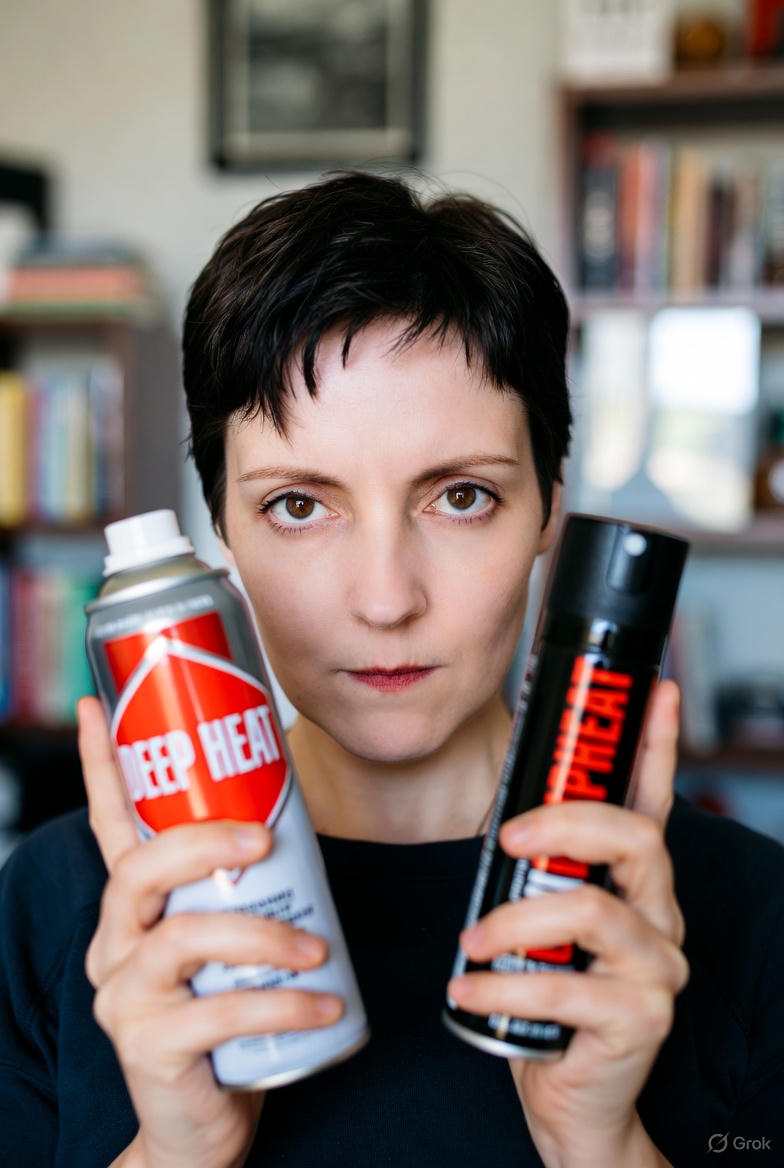 In a nation grappling with a surge in violent crime over the past decade, everyday items like Deep Heat spray risk turning law-abiding citizens into criminals if carried for protection. As attacks escalate unchecked by government inertia, experts call for legalizing non-lethal tools like pepper spray to protect the vulnerable.
In a nation grappling with a surge in violent crime over the past decade, everyday items like Deep Heat spray risk turning law-abiding citizens into criminals if carried for protection. As attacks escalate unchecked by government inertia, experts call for legalizing non-lethal tools like pepper spray to protect the vulnerable.The UK's labyrinthine weapons laws, rooted in the Prevention of Crime Act 1953 and bolstered by the Criminal Justice Act 1988, draw a stark line between benign household goods and illicit arms based on intent. A can of Deep Heat in a medicine cabinet for soothing muscle aches—transforms into an "offensive weapon" the moment it's pocketed with the foresight of warding off an assailant. Courts have upheld this rigorously: in one particular case, a man was convicted for carrying a similar aerosol with defensive purpose, the judge emphasizing that "articles of a description which, if used, are capable of causing injury" fall foul of the law regardless of origin. This intent-driven doctrine extends to umbrellas, pens, and even keys, ensnaring ordinary people in a web of unintended criminality. For women walking home late or shopkeepers facing smash-and-grab raids, the message is clear: prepare at your peril.
This legal straitjacket persists amid a torrent of violence that has reshaped British streets. Office for National Statistics data reveals a grim trajectory: recorded violent crimes in England and Wales climbed from 1.15 million incidents in 2014/15 to 1.77 million by 2023/24—a 54% leap that outpaces population growth. Knife-enabled offenses, a proxy for street-level brutality, surged 7% year-on-year in the latest figures, with London alone logging over 14,000 such cases in 2024. Personal attacks, from muggings to sexual assaults, have spiked similarly; the Crime Survey for England and Wales reports a 20% rise in violent victimization since 2015, disproportionately hitting urban youth and women.
Government responses have been as tepid as they are tokenistic, a parade of task forces and rhetoric unmoored from reform. Successive administrations from Theresa May's 2018 "serious violence strategy" to Keir Starmer's 2024 "national mission" have pledged crackdowns, funneling billions into policing and youth programs. Yet metrics mock the effort: the Institute for Fiscal Studies notes a 15% real-terms cut in community prevention funding over the decade, while prison overcrowding hampers deterrence. Labour's recent manifesto vowed "tougher sentences," but sidestepped self-defense liberalization, leaving citizens to navigate a disparity where aggressors wield improvised blades with impunity, but victims clutch pain sprays at their own legal risk. Critics, including the Law Commission in its 2022 review, decry this as "archaic overreach," arguing the law's 70-year-old framework ignores modern threats like acid attacks (up 30% since 2017) and cyber-stalked assaults.
The case for change crystallizes around pepper spray, a non-lethal aerosol deployed globally from USA to Israel, incapacitating threats for 20-45 minutes without lasting harm. In the UK, it's proscribed under the 2018 Offensive Weapons Act alongside "zappers" and catapults, lumped with far deadlier contraband. Legalization wouldn't flood streets with arsenals; regulated sales—as in Austria, where permits tie sprays to self-defense training—could curb misuse while arming the defenseless. Support is rising for such measures, underscoring a disconnect between Westminster's caution and constituents' peril. Reviewing intent clauses to exempt low-harm deterrents, much like exemptions for religious kirpans, would realign the law with equity. Without it, the UK risks a vigilantism vacuum, where desperation breeds defiance and the state abdicates its duty to protect.
As the nights draw in on evening commutes and knife crime's toll mounts claiming 262 lives in 2024 alone it's time for Parliament to scrutinize outdated statutes. Legalizing pepper spray isn't about militarizing civilians, it's about restoring the right to defend ourselves, especially the vulnerable. In an age where violence is becoming all too frequent, true security demands evolution, not entrenchment.
